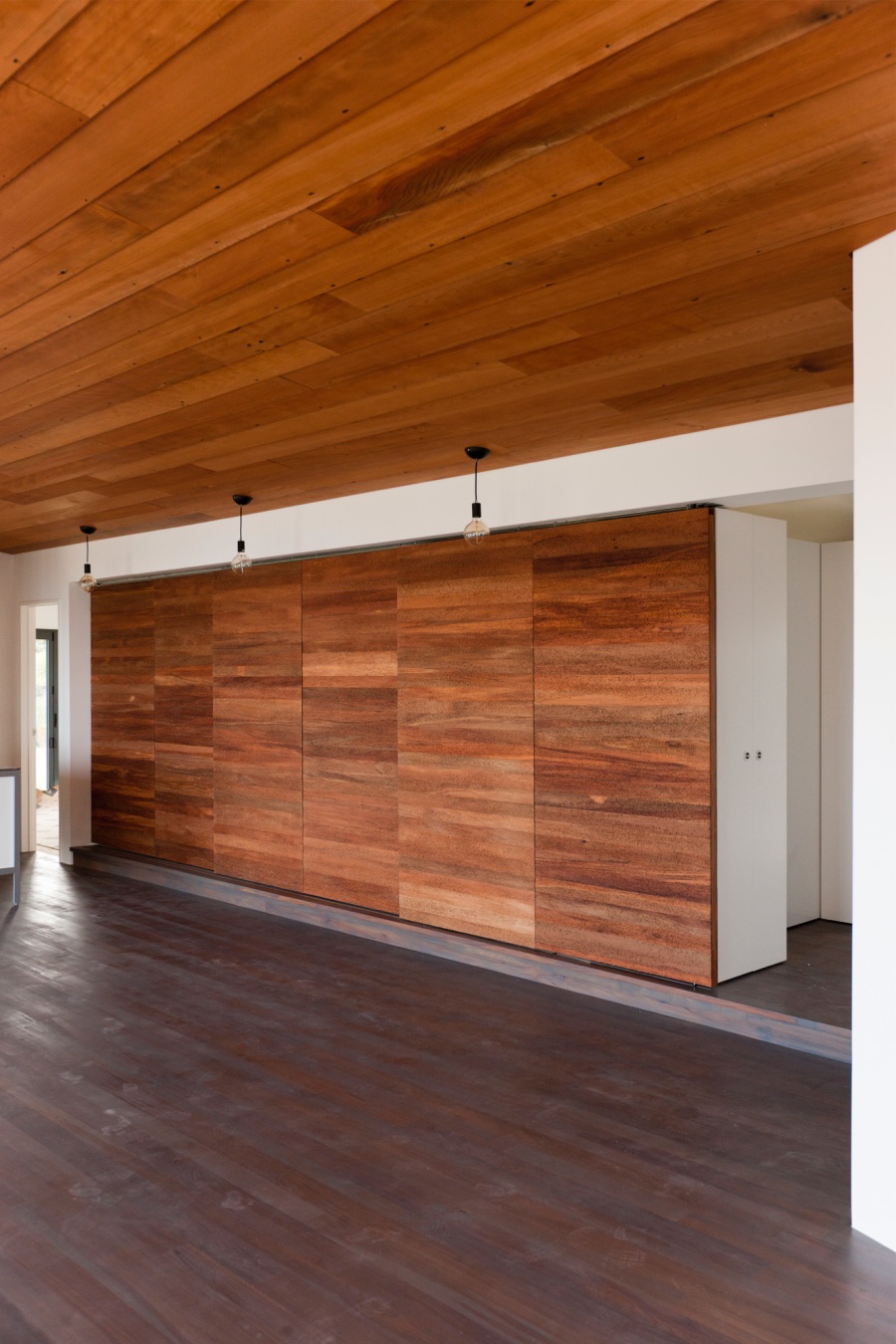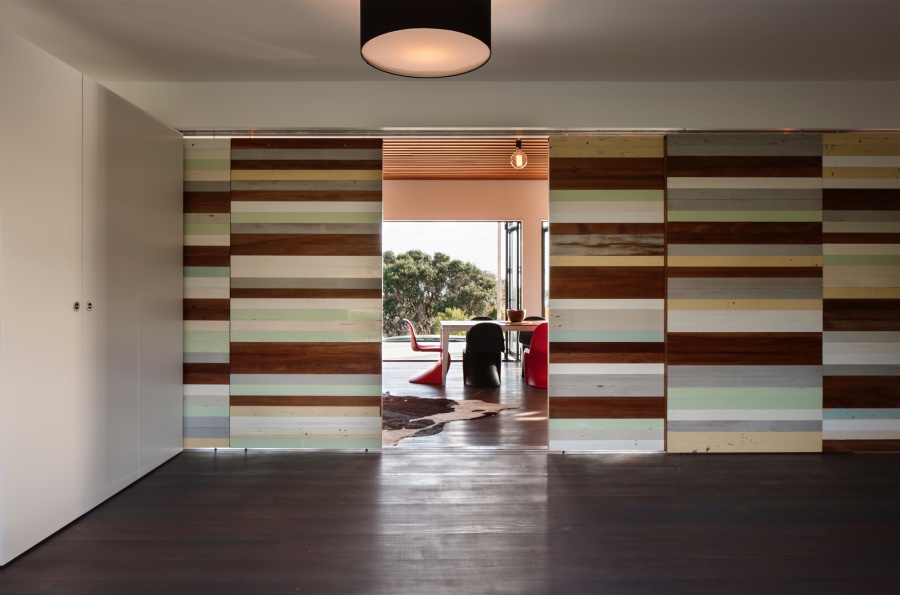|
|
|||||||||||||||||||||||||||||||||||||||||||||||||||||||||||||||||||||||||||||||||||
In this newsletter:
How many of our eucalyptus producers supply exclusively quartersawn decking timber only from trees that are over 60 years old? "Evidence" supplied by two members of Farm Forestry Timbers in a recent Disputes Tribunal hearing convinced the referee that these are prerequisites and clear requirements for merchantable eucalypt decking timber. By "evidence" I mean opinions of course. My interest in this case was aroused because the complainant approached me independently and previously of the case, for my opinion on the quality of their hardwood deck, installed 3 years ago. My opinion was that the installer should have graded the timber and docked out defects before laying the deck. If you install ungraded timber then the deck will contain unwanted defects that rapidly deteriorate over time. The owner wasn't happy with my advice and sought alternative witnesses, their tactic being to seek out local timber "experts" with whatever ardent theories that they were willing to present as supporting evidence at the hearing. Of course, being "experts" there was no need for evidence in support of their theories. They won the case for the deck owner based on their expert status. Now, these two "expert" witnesses, both members of Farm Forestry Timbers, made their own judgements on the deck in question. They judged the deck to be in poor condition because the timber wasn't quartersawn and it must have been sawn from trees less than 60 years old. No doubt about it in their minds, that was what was wrong, with blame squarely on their competitor and supplier of the wood (also a Farm Forestry Timbers member) who clearly needed to be held to account for supplying timber not up to their lofty standards. I'm not impressed, for a number of reasons. Farm Forestry Timbers is an industry body that looks after the interests of specialty timber producers by ensuring that our members supply quality products. We also advocate for producers on quality issues. This means that we form group quality standards collectively and strive for agreement among our members. Spurious opinions from individual members presented as expert evidence at the Disputes Tribunal are not what we need as a group going forward. If as a member you have a theory, then test the theory before claiming it to be fact in court. We don't always have the luxury to undertake scientific testing, but making wild claims as statements of fact (expert opinion) serves only to divide the industry. Sometimes long term experience gives weight to opinion, but only if the theory is not disputed by others with different experiences. That is what makes collective wisdom, experiences over time evolving into knowledge. I know producers who have been supplying flatsawn eucalypt decking into the market for twenty years, without complaint. They stand by their product, which has stood the test of time. I also know producers who saw 30 year old eucalypt and supply a quality decking product from those trees. I ask those members to stand by their statements and provide evidence to support them. Farm Forestry Timbers has a committee available to peer review that evidence and where appropriate get behind it and upgrade our grade rules. Meanwhile these two have set a dangerous precedent in the Disputes Tribunal. Since when has such opinion formed the legal basis on which to trade timber? Since the weight of their status as "industry experts" overshadows the evidence? Their opinions prevailed and served the requirements of the complainant, who wanted their money back for a deck they had botched themselves. I will be seeking the collective view of the Farm Forestry Timbers committee on what we should be doing as an industry body regarding information we supply to members and consumers on product quality. One issue arising from this case is around whether ungraded timber should require a label stating "ungraded timber", or whether this can be assumed and only graded timber need state the grade. Standards of quality need to satisfy both the consumer and also the producer. Until we know better, it is recommended that producers who sell ungraded timber into specific applications such as decking or cladding, where in many cases the installer docks and grades themselves, clearly label the timber "ungraded" or state this on the invoice. Unless there is an appeal, it looks like these two members have now set arbitrary quality standards, whereby the rest of us now risk facing off against them and their infamous expertise in a Disputes Tribunal hearing, where they set the quality standards based on their self-elevated status. Of course, they can believe what they want, but actually if they want the Society behind them then I ask that they provide evidence in support of their claims to their peers. This is not the wild west, as a group we can collectively debate and define quality standards that meet the needs of both consumer and producer. Dean Satchell If you have a story for this newsletter, please get in touch with Dean by email. Timber standards out for public comment Both NZS 3602 Timber and Wood-Based Products for Use in Building and NZS 3604 Timber Treatment have been released for public comment. These are draft standards and in particular NZS 3602 is very important for us to submit on. I have been working on a draft submission but require members input. Please visit the draft submission, you will be able to download the draft standard from there and also make comments directly on the page. You may also wish to make your own submission. I encourage this and am willing to help any member with their submission. The more of us that submit, the more say we have on this very important standard that could have a big impact on demand for specialty timbers. Dean Satchell NZ Wood Resene Timber Design Awards - NZ grown Specialty Timber award The NZ Farm Forestry Association have again sponsored this award for the use of NZ Grown specialty timbers. The use of specialty timber in a manner that best highlights its unique characteristics. This category is open to entries from across the spectrum of NZ grown timber usage from furniture to buildings, facilities to objets d’art. Please think about an entry, the quality of entries depends on people willing to submit. Stage One Entries open: 1 March 2018 ENTRY: Entry is open to NZ resident architects, builders, architectural designers, engineers, students and other designers who have used NZ originated timber that has been manufactured in NZ. Only one entry per project, joint entries between disciplines or firms are welcome.
PRIZES: There will be a cash prize of $2000 awarded for the winner of each category. Last years winner: Langs Doors, Northland

NZ Wood Resene Timber Design Awards Introduce our 2018 Judges An impressive line-up of industry experts have been selected to join the NZ Wood Resene Timber Design Awards 'Judging Panel' for 2018! The Expert Judging Panel for 2018 are:
Tim began his career at a small Auckland practice before venturing overseas and gaining further experience with ORMS Architects in London. On his return to New Zealand Tim was a Senior Architect with Jasmax until 1999 when he founded RTA Studio with Richard Naish. He has been a Principal at Warren and Mahoney since 2012. A specialist in design development, Tim has an in-depth knowledge of documentation methodologies and technical systems, coupled with extensive site and contract management experience. He is a strong communicator and an accomplished team leader who believes that effective collaboration is at the crux of better design outcomes. Tim’s sector experience includes education, commercial, community, mixed use and multi-unit residential. Tim has been an assessor for the New Zealand Registered Architects Board for over ten years, has served two terms as Auckland Councillor on the New Zealand Institute of Architects National Council, and will assume the role of NZIA President in 2018.
David has worked as an experimental researcher in the field of timber structures for over 15 years, testing everything from single nail connections up to full-scale building tests for the New Zealand Ministry of Education, and many things in between. He came to New Zealand in 2008 to work as a Timber Research Engineer with the Structural Timber Innovation Company (STIC) in Christchurch where he worked with the University of Canterbury team in an effort to develop post-tensioned timber buildings for multi-story applications. David has worked at BRANZ for the last 5 and a half years as a structural engineer doing research and conducting testing on a wide range of building products and systems used in conjunction with timber.
Andrea is part of Scion’s (New Zealand Forestry Research Institute) Built Environment team where he is researching on wood design & construction technologies, environmental benefits of using timber in future urban developments along with the social and cultural implications of using wood in the design and construction sector. Among other tasks he is advocating nationally and internationally the use of timber building technologies and engineered wood products in relation to environmental sustainability, building multi-performance, human health and well-being. Andrea is also Member of the Board of the Passive House Institute New Zealand (PHINZ) an Incorporated Charitable Trust that aims to improve public health and well-being and relieving fuel poverty through the promotion of healthy and highly energy efficient homes and public buildings. Andrea is an Italian Registered Architect specialised in building sustainability, energy efficiency and bio-based materials. In Italy he worked as a designer, construction project manager and sustainability consultant on several building projects that maximised the use of wood and other bio-based materials to achieve the highest sustainability targets. This is New Zealand’s only Timber Design award event and allows engineers, architects, architectural designers and builders to showcase innovation using timber. Professionals worldwide are using wood in often new and imaginative ways to improve a building’s seismic and fire resilience, and New Zealand projects are designing buildings to compete with world leaders. Both local and international companies will be looking to NZ for timber design inspiration in 2018. NZ Wood Resene 2018 Timber Design Awards key dates:
Winners are announced at the "Gala Awards Dinner" at the Grand Millennium Hotel Auckland - 20th September 2018. This Gala event is a celebration with New Zealand’s most talented designers, engineers and industry leaders. It’s a night of celebration of excellence in timber design. To view the full list of 2017 finalists: Click here Search the marketplace »
|
|||||||||||||||||||||||||||||||||||||||||||||||||||||||||||||||||||||||||||||||||||
Disclaimer: While every effort is made to ensure the accuracy of the information provided on this site, Farm Forestry Timbers Society do not accept liability for any consequences arising from reliance on the information published. If readers have any doubts about acting on any articles they should seek confirming, professional advice.
 Farm Forestry New Zealand
Farm Forestry New Zealand Farm Forestry Timbers
Farm Forestry Timbers 
 Tim Melville
Tim Melville David Carradine
David Carradine Andrea Stocchero
Andrea Stocchero







.jpg?1514001388)

